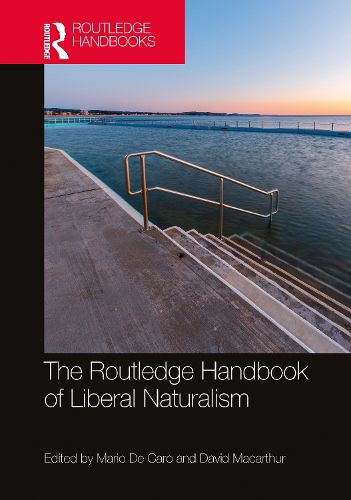Readings Newsletter
Become a Readings Member to make your shopping experience even easier.
Sign in or sign up for free!
You’re not far away from qualifying for FREE standard shipping within Australia
You’ve qualified for FREE standard shipping within Australia
The cart is loading…






The central question of naturalism - the relation of philosophy to science - was one of the defining strands of twentieth-century thought and remains a major source of debate and controversy. Today many argue that philosophy should fold itself into the sciences, especially the natural sciences. Liberal naturalists argue that such scientific naturalism demands reductive and Procrustean conceptions of knowledge and reality. Moreover, many philosophical problems are beyond the scope of the sciences, such as the nature of persons, the normativity of the space of reasons, and how best to understand the peculiar mix of objectivity and subjectivity of ethics and art.
The Routledge Handbook of Liberal Naturalism is the first collection to present a comprehensive overview of liberal naturalism, a philosophical outlook that lies between scientific naturalism and supernaturalism. Comprising 37 chapters by an international team of contributors, it examines important cutting-edge topics including:
what is liberal naturalism? is metaphysics a viable project? naturalism in the history of philosophy, including Hume, Dewey, and Quine contemporary liberal naturalists such as P.F. Strawson, John McDowell, Hilary Putnam, and John Rawls related kinds of naturalism, including subject naturalism, common-sense naturalism and biological naturalism the bearing of liberal naturalism on contemporary debates in epistemology, philosophy of mind, ethics and aesthetics.
Essential reading for students and researchers in all areas of philosophy, this volume will be of particular interest for those studying philosophical naturalism, philosophy of science, metaphysics, epistemology, philosophy of mind, ethics and aesthetics.
$9.00 standard shipping within Australia
FREE standard shipping within Australia for orders over $100.00
Express & International shipping calculated at checkout
The central question of naturalism - the relation of philosophy to science - was one of the defining strands of twentieth-century thought and remains a major source of debate and controversy. Today many argue that philosophy should fold itself into the sciences, especially the natural sciences. Liberal naturalists argue that such scientific naturalism demands reductive and Procrustean conceptions of knowledge and reality. Moreover, many philosophical problems are beyond the scope of the sciences, such as the nature of persons, the normativity of the space of reasons, and how best to understand the peculiar mix of objectivity and subjectivity of ethics and art.
The Routledge Handbook of Liberal Naturalism is the first collection to present a comprehensive overview of liberal naturalism, a philosophical outlook that lies between scientific naturalism and supernaturalism. Comprising 37 chapters by an international team of contributors, it examines important cutting-edge topics including:
what is liberal naturalism? is metaphysics a viable project? naturalism in the history of philosophy, including Hume, Dewey, and Quine contemporary liberal naturalists such as P.F. Strawson, John McDowell, Hilary Putnam, and John Rawls related kinds of naturalism, including subject naturalism, common-sense naturalism and biological naturalism the bearing of liberal naturalism on contemporary debates in epistemology, philosophy of mind, ethics and aesthetics.
Essential reading for students and researchers in all areas of philosophy, this volume will be of particular interest for those studying philosophical naturalism, philosophy of science, metaphysics, epistemology, philosophy of mind, ethics and aesthetics.